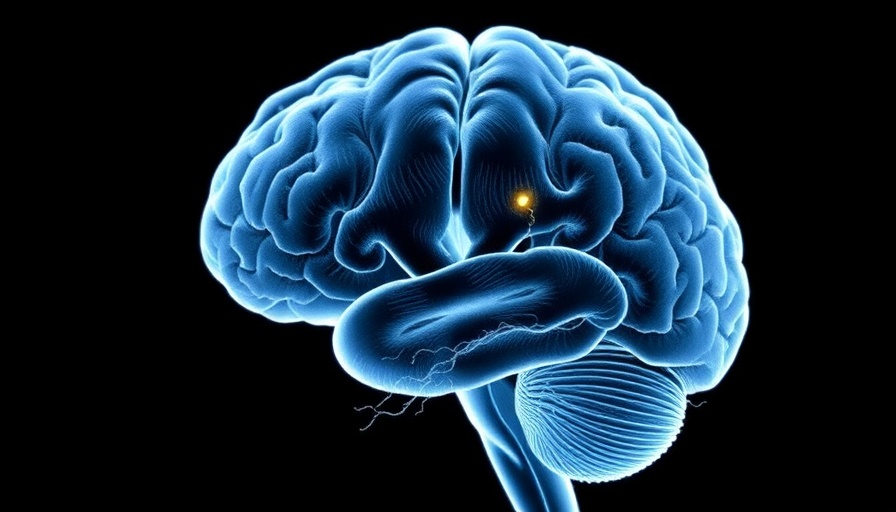
A Hidden Link: White Matter and Cognitive Health
Many individuals suffering from major depressive disorder (MDD) experience debilitating cognitive deficits, including problems with memory, concentration, and slower mental processing. Although most recognize the emotional toll of depression, fewer are aware that nearly 94% of individuals experience cognitive difficulties during acute phases of the disorder, with these issues extending into remission for about 73% of patients. Understanding the relationship between white matter microstructure and cognitive health could illuminate pathways to better treatment and prevention strategies.
The Significance of White Matter
White matter serves as the brain's communication network, composed primarily of myelinated axons that facilitate information exchange between regions. Recent studies suggest that alterations in the microstructure of white matter could play a critical role in the cognitive decline observed in MDD. Despite its significance, the precise biological mechanisms linking white matter changes to cognitive dysfunction remain poorly understood.
New Insights from Diffusion-MRI Studies
Utilizing diffusion-weighted magnetic resonance imaging (dw-MRI), researchers can analyze white matter changes at a microscopic level. A key measurement in this area is fractional anisotropy (FA), which gauges the directionality of water diffusion within white matter—a potential indicator of white matter integrity. Low FA values may hint at substantial degeneration, possibly indicating demyelination or axonal injury.
Longitudinal Research: A Step Forward
In a significant study led by Flinkenflügel et al. (2024), researchers focused on evaluating cognitive performance alongside changes in white matter microstructure over a two-year period in individuals with MDD. By employing a “life-charting” approach to track the disease course and correlating it with MRI results, the study aims to shed light on how fluctuations in white matter integrity influence cognitive abilities long-term.
Cognitive Performance: Tracking Change
Initial findings from Flinkenflügel's research indicate that cognitive performance shows noteworthy correlations with white matter changes. In the follow-up assessments, participants who maintained a full remission of MDD displayed less cognitive decline compared to those with acute conditions. These results ignite curiosity about the potential to use white matter microstructure as a predictive marker for cognitive outcomes in MDD.
Understanding Treatment Implications
As many health specialists may overlook cognitive symptoms within the treatment spectrum of depression, the findings underscore the necessity for holistic approaches. Addressing cognitive deficits could enhance overall treatment effectiveness and improve the quality of life for individuals with MDD. By acknowledging that cognitive health is intricately tied to biological mechanisms in the brain, practitioners can thus better personalize intervention plans.
An Encouraging Outlook for Cognitive Care
As research continues to explore the connection between white matter microstructure and cognitive performance in MDD, there is hope for developing advanced therapeutic strategies aimed at mitigating cognitive decline. Engaging in lifestyle modifications, such as physical exercise and mental activities, could foster cognitive resilience and even promote healthier white matter integrity.
In conclusion, comprehending the critical role white matter microstructure plays in cognitive functioning for those with major depressive disorder represents not just an academic pursuit but a necessary avenue for better mental health care. Individuals living in the Grand Strand and others alike should engage with their healthcare providers about cognitive symptoms as part of their treatment for depression.
To further your understanding and practice better self-care, consider discussing cognitive health with a mental health professional today. Your brain health is pivotal to your overall well-being and deserves attention.
 Add Row
Add Row  Add
Add 





 Add Row
Add Row  Add
Add 
Write A Comment